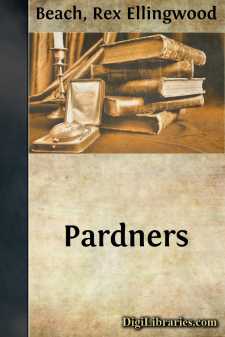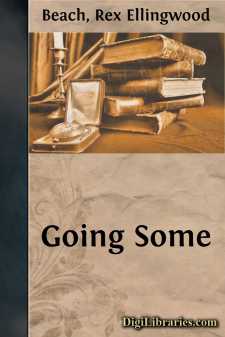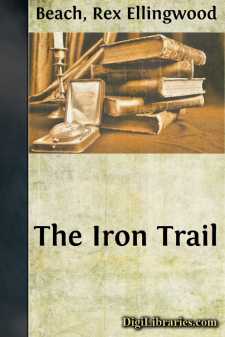Categories
- Antiques & Collectibles 13
- Architecture 36
- Art 48
- Bibles 22
- Biography & Autobiography 813
- Body, Mind & Spirit 142
- Business & Economics 28
- Children's Books 15
- Children's Fiction 12
- Computers 4
- Cooking 94
- Crafts & Hobbies 4
- Drama 346
- Education 46
- Family & Relationships 57
- Fiction 11829
- Games 19
- Gardening 17
- Health & Fitness 34
- History 1377
- House & Home 1
- Humor 147
- Juvenile Fiction 1873
- Juvenile Nonfiction 202
- Language Arts & Disciplines 88
- Law 16
- Literary Collections 686
- Literary Criticism 179
- Mathematics 13
- Medical 41
- Music 40
- Nature 179
- Non-Classifiable 1768
- Performing Arts 7
- Periodicals 1453
- Philosophy 64
- Photography 2
- Poetry 896
- Political Science 203
- Psychology 42
- Reference 154
- Religion 513
- Science 126
- Self-Help 84
- Social Science 81
- Sports & Recreation 34
- Study Aids 3
- Technology & Engineering 59
- Transportation 23
- Travel 463
- True Crime 29
The Crimson Gardenia and Other Tales of Adventure
Description:
Excerpt
The royal yacht had anchored amid a thunder of cannon, and the king had gone ashore. The city was bright with bunting; a thousand whistles blew. Up through the festooned streets His Majesty was escorted between long rows of blue-coated officers, behind which the eager crowds were massed for mile upon mile. Thin wire cables were stretched along the curbs, to hold the people back, but these threatened to snap before the weight of the multitude.
In the neighborhood of the raised pavilion where the queen and her maids of honor waited, the press was thickest; here rows of stands had been erected that groaned beneath their freight, while roof-tops and windows, trees and telegraph-poles, were black with clustered humanity.
The king was tall and dark; a long beard hid his face. But the queen was young and blushing, and her waiting-women were fairer than springtime flowers. To a crashing martial air, she handed him a sparkling goblet in which he pledged her happiness, while the street rocked to the roar of many voices, and in the open spaces youths, grotesquely costumed, danced with goblin glee.
Mr. Roland Van Dam secretly thought it all quite fine and inspiriting, but he was too highly schooled to allow himself much emotion. He had been hard put to obtain seats, and had succeeded only through the efforts of a friend, the Duke of Cotton; therefore, he felt, the members of his party might have shown at least a perfunctory appreciation. But they were not the appreciative kind, and their attitude was made plain by Eleanor Banniman's languid words:
"How dull! It's nothing like the carnival at Nice, and the people seem very common."
Her father was dozing uncomfortably, with his two lower chins telescoped into his billowing chest; Mrs. Banniman complained of the heat and the glare, and predicted a headache for herself. Near by, the rest of the party were striving to conceal their lack of interest by guying the crowd below. Van Dam had been the one to suggest this trip to New Orleans for the Mardi Gras, and he felt the weight of entertainment bearing heavily upon him. In consequence, he assumed a sprightly interest that was very far from genuine.
"This sort of thing awakens something medieval inside of one, don't you know," he said.
Miss Banniman regarded him with a bland lack of comprehension; her mother moaned weakly, the burden of her complaint being, as usual:
"Why did we leave Palm Beach?"
"All those dukes and things make me feel as if it were real," Van Dam explained further. "They say this Rex fellow is a true king during Mardi Gras week, and those chaps in masks are quite like court jesters. Maybe they sing of wars and love and romance—and all that rot."
"I dare say life was just as uninteresting in olden days as it is now," Eleanor remarked. "Love and romance exist mainly in books, I fancy. If they ever did exist, we've outgrown them, eh, Roly?"
Being a very rich and a very experienced young woman, Miss Banniman prided herself upon her lack of illusion. To be sure, she occasionally permitted Roland to kiss her in celebration of their engagement, but such caresses left her unperturbed; her pulses had never been stirred. She looked upon marriage as a somewhat trying, although necessary, institution. Van Dam, being equally modern and equally satiated by life's blessings, shared her beliefs in a vague way.
Manifestly, no lover could allow such an assertion as this to go unchallenged, so he rose to the defense of romance, only to hear her say:
"Nonsense!...












